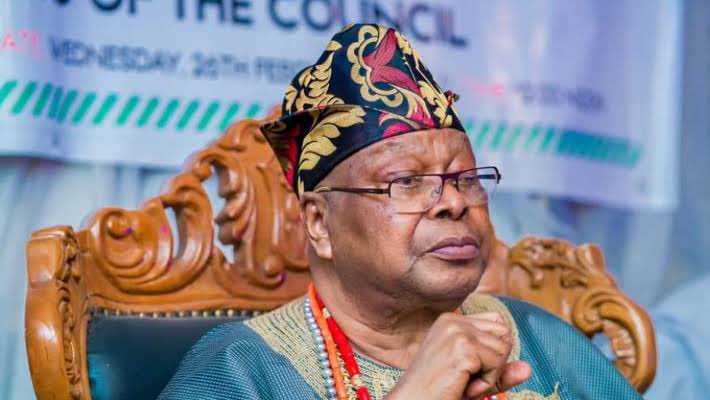
In recent decades, Sub-Saharan Africa has undergone a remarkable transformation. While, historically, the region has faced numerous challenges—including political instability, economic inequalities, and infrastructural deficits—it has also seen significant advances in technology, education, and innovation.
The rise of a young, dynamic population with growing aspirations is fueling a new wave of consumerism across the continent. For Sub-Saharan Africa to capitalize on its potential and bolster its standing on the global stage, exporting consumer brands can be an invaluable tool.
The Power of Consumer Brands in Global Influence
Consumer brands have long been a driving force in shaping global culture. Companies like Apple, Nike, and Coca-Cola have elevated industries, becoming symbols of aspiration, innovation, and excellence. These brands transcend national borders, giving rise to global conversations and influencing how people worldwide perceive different cultures and lifestyles.
For Sub-Saharan Africa, consumer brands represent a unique opportunity to craft a new narrative about the region. By strategically curating brand images to reflect Africa’s creativity, resilience, and potential, companies can challenge outdated stereotypes, promote the region’s culture, and create new pathways for global influence.
Africa’s Untapped Brand Potential
Africa’s consumer market is one of the fastest-growing in the world. According to the African Development Bank, the continent’s consumer spending is expected to exceed $6 trillion by 2030. This skyrocketing consumer base presents fertile ground for the development of Indigenous brands that can expand both within the continent and globally. However, despite this economic dynamism, many African countries still struggle with branding challenges—often due to lingering misconceptions about the region’s safety and stability.
The African Union’s Agenda 2063 outlines a vision for a “united, peaceful, and prosperous Africa. ” However, for this vision to become a reality, the global image of Africa needs to evolve. Consumer brands are positioned to lead this change. Through global marketing and cultural engagement, brands can be powerful agents of soft power, shaping how the world perceives the continent.
Strategic Brand Development
To maximize consumer brands’ power, African companies must focus on creating authentic, innovative, and high-quality products that meet the needs of local consumers while resonating with global markets. Several successful African brands have already demonstrated the power of strategic branding. For example, Jumia, often referred to as the “Amazon of Africa,” has made significant inroads into e-commerce across the continent and beyond.
With a presence in over 10 countries, Jumia has introduced African consumers to the convenience of online shopping while also becoming a recognizable name globally. The company’s brand represents access to goods and services and the promise of technological advancement and modernity for the African consumer.
Similarly, companies like Dangote Cement, Africa’s largest producer of cement, have built global reputations based on quality and reliability. Dangote’s reach go beyond Nigeria into other parts of Africa, the Middle East, and even Asia. The company has helped lay the foundation for infrastructure across Africa, contributing to its economic development.
In the telecommunications space, Kenya’s Safaricom has gained international recognition, particularly through its mobile payment service, M-Pesa. What started as a simple mobile money transfer platform has become a global success story. M-Pesa has expanded into several countries, including India and Eastern Europe.
Enhancing Africa’s Reputation Through Cultural Identity
One of the most effective ways for African brands to elevate the continent’s global reputation is by embracing and showcasing its rich cultural heritage. African cultures are incredibly diverse, and the continent is home to many languages, art forms, music, and traditions. By incorporating these elements into their branding efforts, companies can offer a unique perspective on Africa that challenges the typical narrative of poverty and conflict.
For instance, the fashion industry has become an increasingly important space for African brands to define global cultural trends. Designers such as Nigeria’s Deola Sagoe, South Africa’s Thebe Magugu, and Ghana’s Christie Brown showcase African creativity and craftsmanship while bringing the continent’s cultural narrative to the global stage. These brands are helping reimagine African fashion’s global image from merely a trend to a dynamic, influential sector with a rich history.
Similarly, the food and beverage sector is another area where African brands are gaining global traction. Nigerian-owned Chivita, with its premium fruit juices, is making waves internationally, with a growing presence in markets like the United States, the United Kingdom, and Canada. In addition, Nairobi Java House, a popular coffee brand based in Kenya, has expanded its footprint beyond East Africa. By maximizing Kenya’s reputation as a leading coffee producer, Nairobi Java House has succeeded in offering high-quality coffee to global consumers while highlighting the region’s agricultural potential.
Fostering Pan-African Collaboration
Collaboration across borders is essential for African brands to achieve truly global influence. Sub-Saharan Africa’s diverse markets—ranging from the emerging middle class in countries like Kenya and Nigeria to the more established economies of South Africa—present unique challenges but also incredible opportunities for cooperation. With inter-African collaboration in business, innovation, and marketing, the continent’s brands can become more unified and resilient globally.
Pan-African business networks, such as the African Chamber of Commerce, are already vitally connecting companies across the continent. The African Continental Free Trade Area (AfCFTA), which aims to create a single market for goods and services across the continent, could significantly enhance the ability of African brands to scale quickly and gain recognition abroad. By aligning their interests and working together, African companies can pool their resources, talent, and expertise to increase their collective impact.
Technology Meets Innovation
Technology is another vital driver of Africa’s future branding success. The continent is experiencing a digital revolution—increasing access to mobile phones, internet connectivity, and e-commerce platforms. These technologies enable African consumers to connect with global markets and offer new avenues for African brands to reach international consumers.
Companies such as Flutterwave, which provides digital payment solutions for African businesses, and M-Pesa, a mobile money platform, have already become global symbols of Africa’s growing technological prowess. These platforms are changing how African consumers interact with the global economy and driving innovation, placing Africa in the global tech ecosystem.
Consumer brands must adapt to the rapidly evolving digital landscape to succeed. Digital storytelling, social media engagement, and influencer partnerships can serve as potent tools for amplifying Africa’s message of progress.
A Powerful Place in the World
Sub-Saharan Africa’s consumer brands can be powerful instruments in reshaping the region’s image on the global stage. By focusing on innovation, quality, and cultural authenticity, African companies have the potential to drive a global shift in perceptions, making the continent a leader in entrepreneurship, technology, and creativity.
The future of Sub-Saharan Africa lies in its ability to harness its vast potential—through economic growth and the cultivation of a globally resonant identity. Consumer brands are not just businesses but ambassadors of the continent’s promise and place in the world.
About the Author
Yana Ernazarova is a chief marketing officer and a consumer goods marketing expert with 10+ years of experience across startups and $1B brands. Previously, Yana led Pampers Startup which changed how digital marketing was done at Procter & Gamble. She also consults startups and established companies on marketing strategy. Yana holds a Dartmouth BA and a Wharton MBA.






